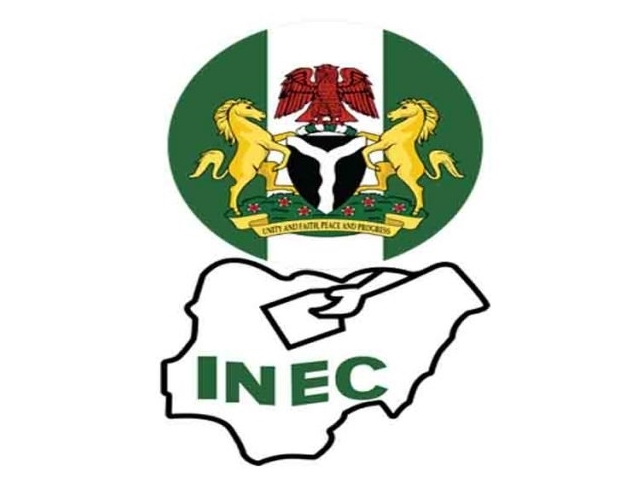The Independent National Electoral Commission (INEC) will scrupulously apply laws, particularly the Electoral Act, of 2022 without fear or favour to ensure free, fair, credible, inclusive and transparent elections in 2023.
The INEC Chairman, Prof. Mahmood Yakubu, made this known on Wednesday in Abuja, at the 4th Memorial Lecture in honour of Late Director-General of The Electoral Institute (TEI), Prof. Abubakar Momoh, who died on May 29, 2017.
Yakubu was represented by Prof. Abdullahi Zuru, National Commissioner and Chairman, Board of Electoral Institute.
Yakubu assured Nigerians that INEC has no preferred party or candidate, but shall only ensure that all valid votes count and the winners are decided solely by the voters.
The chairman said that as the 2023 general elections draws near, it was imperative for all stakeholders especially the political parties to note the major features introduced by the new Electoral Act 2022.
He also advised party leaders to note the possible implications of these changes on the upcoming elections, saying the happenings that accompanied the recent party primaries attest to this.
“These changes include amongst others, the conduct of early party primaries by political parties, technological changes in the electoral process;
“The Commission’s power to review the decision of the returning officer and overvoting based on the number of accredited Voters.
Yakubu said that those new initiatives served as the bedrock for the reviewed Regulations and Guidelines for the Conduct of Elections 2022, and the review of the Manual for Election Officials, 2022.
He said that the use of electronic devices were now legally allowed in the accreditation process for voters, collation of results and in the general conduct of elections.
These according to him includes the Bimodal Voters Accreditation System (BVAS), INEC Voter Enrolment Device (IVED); INEC Results Viewing Portal (IRev) and other technological devices.
“Please be assured that these innovations are intended to deepen the electoral process in our country.
“Their optimal performance in the just concluded gubernatorial elections in Ekiti and Osun States is an eloquent testimony to their electoral value.
“We shall only do more to consolidate their deployment,” Yakubu said.
He described the Electoral Act as ingredients for party building, stabilisation of electoral rules and democratic consolidation.
He expressed the conviction that party chairmen and members would be committed to ensuring that the 2023 general election would be devoid of deliberate infractions to the 2022 Electoral Act.
The INEC chairman said that should be done essentially by allowing the electoral process to run smoothly thereby growing a rich democratic culture and acceptable election outcome.
In his remarks, the Director-General of TEI, Dr Sa’ad Idris, said that this year’s memorial lecture and training was held to interact with party executives and discuss the implications arising from the New Act for the 2023 General Elections.
Idris said that the theme of the lecture was apt, to train the political parties executives on the various sections of the new Electoral Act and the critical implications embedded in many of its sections.
He said that the unfortunate preponderance of many legal cases arising even from the pre-election period up till after the conduct of the elections, had at many times brought a lot of challenges to the electoral process and the country’s political development at large.
“It is hoped that with this lecture and training for party executives, due influence can be brought to bear and reduce the swift race to the courts that has characterised our political space in the last 10 years.
“For an umpire and stakeholders who are conscious of their responsibilities of ensuring conduct of free, fair, credible and inclusive elections, the Electoral Act has brought on board solutions to many issues that in the past have fuelled endless litigations in our courts,” he said.
Idris expressed believe that the lecture would interrogate the relationship between the new Act and the roles of all stakeholders particularly the commission and the 18 political parties and 2023 General Elections.
He also expressed hope it would suggest ways of conducting free, fair, credible and inclusive elections without unnecessary litigations that could be drawbacks to the election.
The Guest Speaker, Prof. Yemi Akinseye-George, former Professor of Law, Afe Babalola University, Ado-Ekiti, Ekiti, advised political parties to obey their own rules and others by INEC and the Constitution of Nigeria.
“The Supreme Court has decided in several cases that political parties must obey their own constitutions as the court will not allow them to act arbitrarily or as they like.”
Akinseye-George, a scholar and renowned legal practitioner, advised Nigerians to change their mindset where people see politics as dirty and reckless game.
“Politics is not anarchy; it is not disorderliness; it must be punctuated by justice, fairness and orderliness,” he said.
Akinseye-George also advised INEC to monitor political parties and enforce them to comply to its laws including the parties’ finances
“Until we put the political parties right on their finances, our elections cannot be right,” he said.
The widow of the late D-G, Mrs Tawa Momoh, appreciated INEC for sustaining the lecture after five years of her husband’s death.
